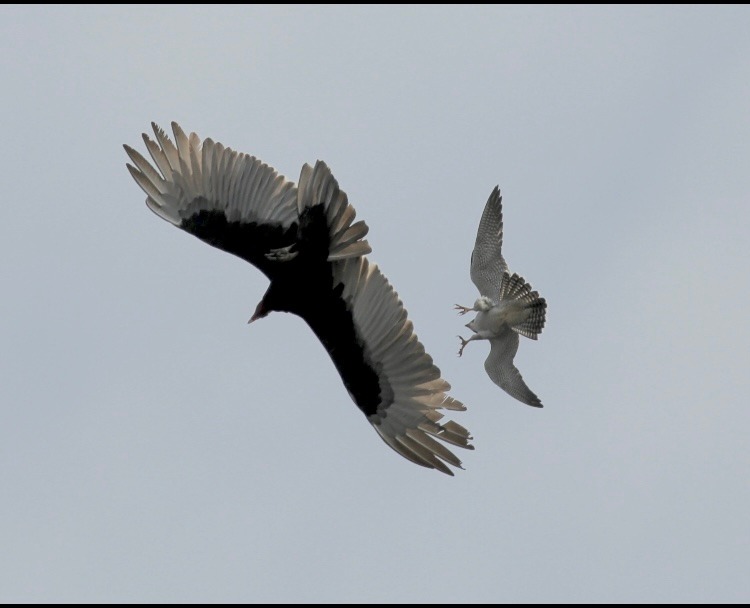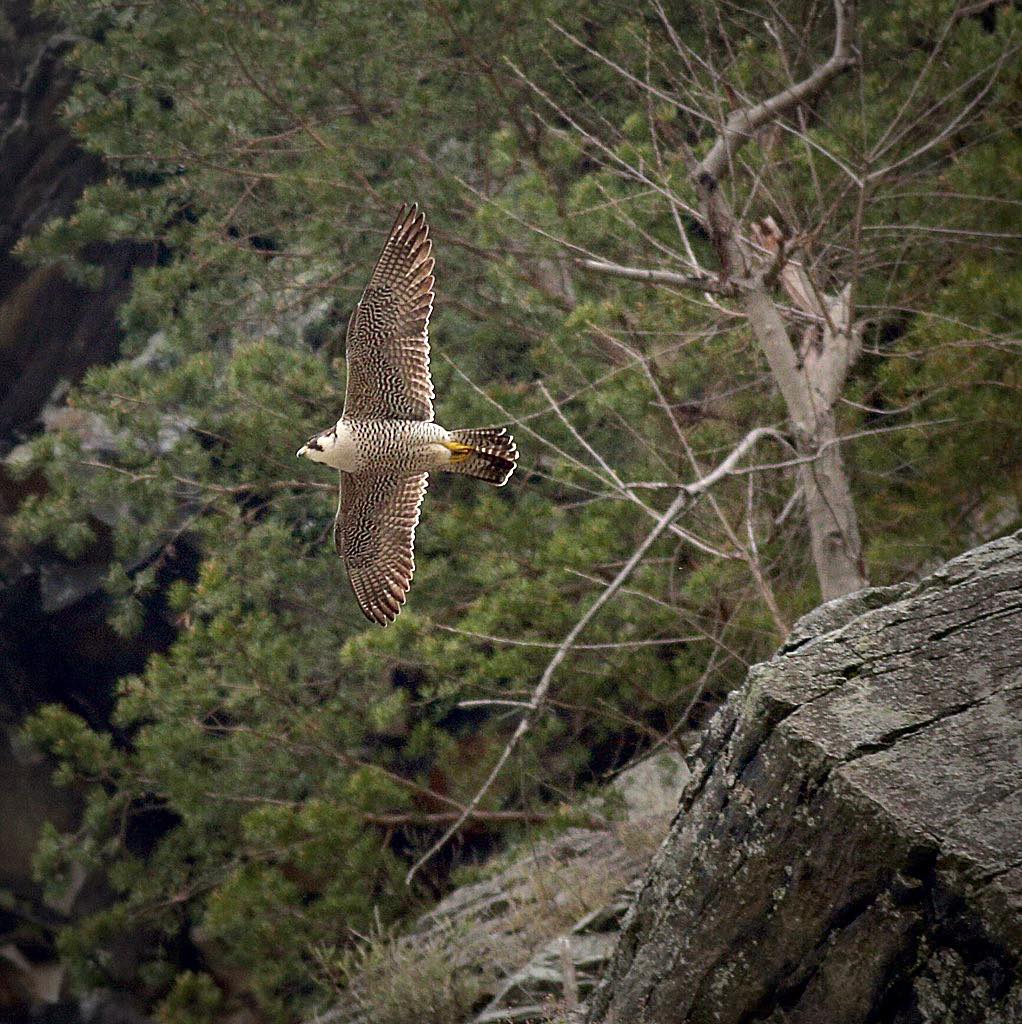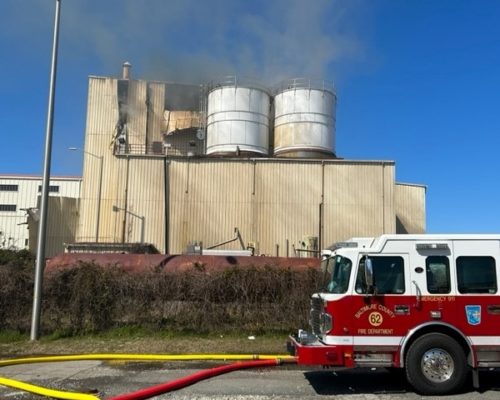An exciting arrival has the upper Potomac River all atwitter: a nesting peregrine falcon couple, which fledged in Harpers Ferry in 2021 for the first time in 70 years, has returned for the 2022 season.
Harpers Ferry National Historic Park preemptively closed an area of the cliffs on Maryland Heights in anticipation of the falcons’ return, with park staff installing fencing and signage to give the pair enough space to nest. The National Park Service (NPS) says several rocky areas near the Maryland Heights overlook and the following climbing areas are closed until July 29:
- The Gully
- Sign Wall
- ABC Ramps
- Train Tunnel Wall
- Confederate Walls
And it appears their precautionary closures have paid off. The male and female falcons have both been spotted back in Harpers Ferry. Volunteers and staff are taking part in a peregrine falcon monitoring program that kicked off this week. And they’ve already witnessed the male falcon attack a much larger turkey vulture (probably to defend its territory, not to hunt it).

While NPS is asking visitors to respect the birds’ space to give them a safe habitat for breeding and nesting, there are opportunities to watch them from a safe distance. They suggest The Point in Lower Town Harpers Ferry. Binoculars are key, as peregrine falcons are relatively small raptors (the size of a crow) and they can fly very fast.
Last year, the falcon pair had three chicks, only one of which survived the vulnerable newborn phase to fledge, NPS says. Human disturbance remains a major risk. Peregrine falcon populations saw a large decline from the 1950s-1970s because of pesticide poisoning, and they were listed as endangered until 1999. They are still considered a Sensitive Species, according to the U.S. Fish and Wildlife Service.
Peregrine falcons are cliff-dwelling raptors, choosing these inaccessible homes to protect themselves from ground predators. But these falcons are also formidable predators. They mostly hunt birds, including waterfowl. When diving to go in for the kill, peregrine falcons can reach incredible speeds of 200 miles per hour.
NPS plans to post updates on the falcon family periodically on social media, with the hashtag #FalconFriday, as the season progresses. Female peregrine falcons typically lay 3-4 eggs and incubate them for about 34 days. Learn more about the raptors nesting at Harpers Ferry at go.nps.gov/HFfalcons.
-Meg Walburn Viviano




